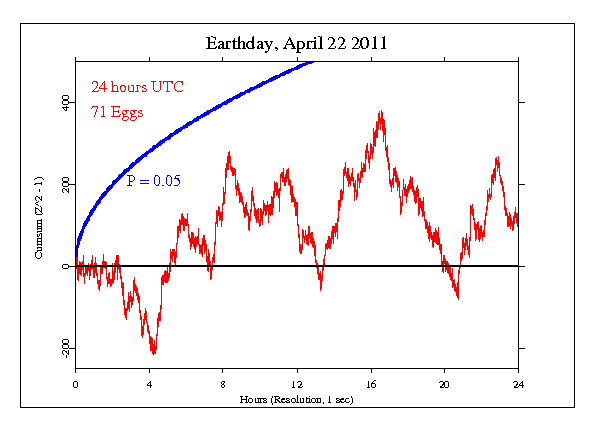|
Earth Day in 2011 is on April 22 again. This year it was on
Friday, and as usual, there was a
lot of publicity including some observances in Washington. I received
input from several sources working on recruiting people to
join together. We now have several repetitions of this as a formal
hypothesis test.
Since
1970, Earth Day has been an annual event for people around the world to
celebrate the earth and our responsibility toward it. The Earthday
network says, "Volunteer. Go to a festival. Install solar panels on your
roof. Organize an event where you live. Change a habit. Help launch a
community garden. Communicate your priorities to your elected
representatives. The possibilities are endless! Do something nice for
the earth, have fun, meet new people, and make a difference."
Earth Day 2000 -- the 30th anniversary -- was expected to stir 500
million people on all continents and in more than 160 nations. Probably
the expectations in 2011 should also be high since the
environment is getting so much more play in the media, and a
continuously growing
recognition that we must pay attention to the earth's needs.
As before, consonant with GCP
purposes that include helping more people recognize that we can have a
better future by becoming more conscious of our interdependence, Earth
Day seems a natural event to examine. Since the Earth Day observances
are very diffuse, with no central, focal moment, we again
have decided that a
sensible prediction is to expect the whole day to show
the effects of large numbers of separate celebrations, rituals,
meetings, and consciousness raising events. The full 24 hours of data
for 22 April, 2011, based on UTC time, were extracted, and processed as
raw second-by-second composites across all eggs. At the time of
processing, 71 eggs had reported. The figure below shows
the cumulative deviation for the 24 hour period. The total Chisquare was
86517 on 86400 degrees of freedom, for a p-value of
0.389 and Z = 0.282, modestly positive, and a small
contribution to the accumulation of correlations over the
years.
A survey of earthdays from 2000 to 2006, 2009 to 2011
reveals that most have a modest positive deviation, and the
composite Z for 10 earthdays is about Z = 2.5.

|